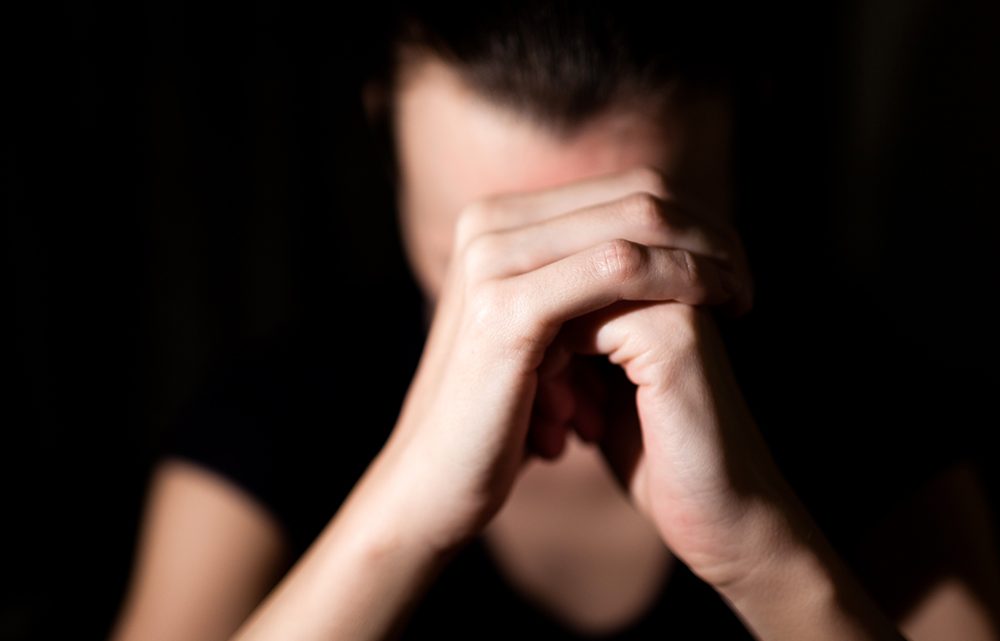Kerthump–kerthump-kerthump-kerthump … My heart thudded in my chest, shaking my ribcage violently. A rush of cortisol flooded my veins and sank into my muscles. Alarm bells clanged in my head as I sucked air in short, rapid breaths. I watched, terrified, as my fingers curled in unnatural ways. My legs and arms seized, growing cold and numb. I’m dying. I swear I’m dying.
I learned two things my first day of college. First, I have social anxiety. Second, God is going to take care of me.
Leading up to that first day, my family kept telling me, “College is different than high school,” “College is harder than high school,” and “The teachers won’t care if you fail.” That terrified me. I had serious issues forming lasting friendships in high school, and for a while my only real friends were my teachers. By Monday morning, I had thoroughly convinced myself that I was going to fail college and make enemies out of my classmates and professors while doing so.
In seeking help for my social anxiety, I discovered that it is a common problem among college students. We’re just very good at hiding it. Unfortunately, hiding it doesn’t help. Lorie Escobar, licensed professional counselor at Union College, said, “I’ve had students tell me that…they struggle to go into the cafeteria to even get food, or if they do, they’ll run back to their room.” Others stand outside their classrooms, terrified to enter.
Some good ways to combat social anxiety are cognitive behavioral therapy, medication (as prescribed), healthy lifestyle changes, and breathing techniques. Another is a relationship with God.
I asked Escobar if she’d seen a difference in recovery among those with a strong relationship with God and those without. In her years working in private practice, she did notice a difference. Since a large cause of social anxiety is self-doubt, Escobar gave this example: “If I don’t know who I am in Christ, if I’m still trying to figure that out, I may be more inclined to get pushed around by opinions of other people.” Escobar explained that while people change, God will not. Escobar also mentioned being part of a community to be helpful.
I asked adults with social anxiety about the role of their relationship with God and their community in recovery. Some had been dealing with social anxiety for over ten years. The first person I spoke to, Rachel, explained how being close to God helps her: “He reminds me that I am the way He made me, and I have value and purpose when I’m with Him. He’s still using me in His greater plan…I’m fallen, I’m gonna be messy. It’s gonna be okay…He uses our imperfections for greater things.”
Another person I interviewed, Tracy, said her prayer group supports her by praying for her, emailing her, and talking with her. In my conversation with LaDawn, she mentioned she spends time in prayer every day and listens to her Bible. Her church also offers a support group for people to encourage each other rather than “fix” each other.
However, there is a huge difference between healthy spirituality and religion. LaDawn, for instance, avoided accepting medication for her severe Social Anxiety Disorder for a long time. She said, “I always had been taught that if you have something mentally wrong with you, you just needed to have more faith.” Lacey, a freshman in college, shared that she had once been told, “You’re worried? Well, just pray about it.”
Social anxiety is not something you can simply pray away or wave off like an annoying fly. Mental health issues are incredibly important. Abiding with Christ by meditating in prayer, replacing fear with truth and accepting healthy community support aids in dealing with social anxiety. These techniques can be used in addition to (and possibly amplify the effects of) therapy, medication and lifestyle changes.
 Maria Kercher is a public relations major who plans to become a technical writer.
Maria Kercher is a public relations major who plans to become a technical writer.










